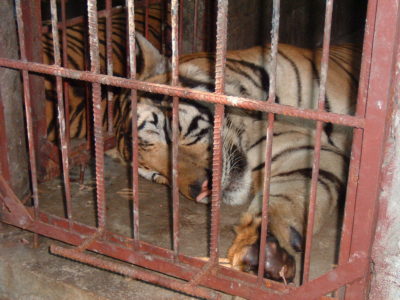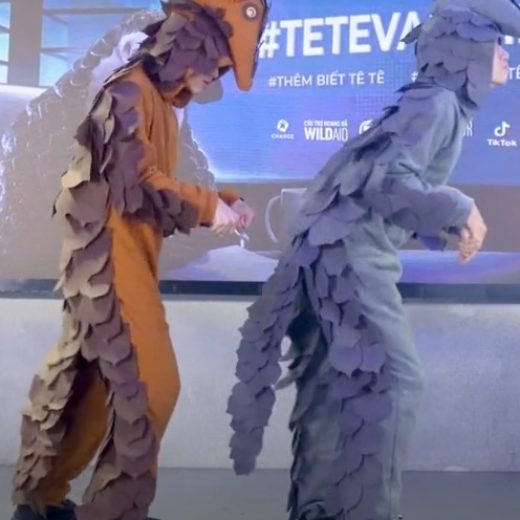
Sacramento, CA – April 13, 2020 – On the heels of a bipartisan Congressional coalition’s letter to the World Health Organization and other intergovernmental bodies urging a worldwide ban on live animal markets, legislators in California and New York have announced plans to ban such live animal markets in their respective states. The bills would also cut off imports of exotic and endangered wildlife that could spread zoonotic disease like COVID-19. Senator Henry Stern (CA) and Assembly member Linda Rosenthal (NY) are working with animal protection legislative advocacy group Social Compassion in Legislation (SCIL) to create the groundbreaking legislation.
“Social Compassion in Legislation wants to thank Senator Stern and Assembly member Rosenthal in working with us to ban live animal markets in CA and NY. We are partnering with PETA and WildAid to help make this a global movement to end these markets. Time is of the essence to do away with the unacceptably cruel status quo which has cast a dark shadow over the entire world through COVID-19. As with our other sponsored legislation, California and New York can be models for the rest of the world,” said Judie Mancuso, founder and president of SCIL, who is leading the legislative advocacy effort and building the coalition.
With the outbreak of COVID-19 bringing the world’s attention to the effects of these markets on both the animals suffering in them and the profound human health consequences of disease transmission, urgent calls from conservation, animal rights, and the general public to ban these kinds of markets, and wildlife trafficking in general, are growing louder. While each state has different levels of regulations around the sales and possession of live animals being sold for food, as well as body parts hunted as trophies, both legislators agreed that their respective states could do better to protect public health and the animals trafficked both here and abroad.
In California, amphibians, reptiles, and birds are currently allowed to be sold in “live animal markets,” which are defined as a retail food market where, in the regular course of business, animals are stored alive and sold to consumers for the purpose of human consumption, meaning they are sold to the public.
“We need to stop the brutal trade in exotic and endangered wildlife once and for all,” said California State Senator Henry Stern (D-Los Angeles), Chair of the Senate Natural Resources and Water Committee. ”Whether it’s a pangolin being sold for faulty medicine, a white bengal tiger being enslaved for entertainment, or a black rhino “trophy” used to satisfy some misguided hunter‘s ego, California must put an end to wildlife trafficking.”
Senator Stern’s legislation, SB 1175, would ban imports and sales of live wild animals that pose zoonotic disease transmission risk, as occurred in the Wuhan live animal markets, as well as “trophy hunted” endangered species like lions, elephants, and rhinos.
In addition to sales as pets, medicine, food, or entertainment, many exotic and endangered species are also sold in the United States in their trophy form. In 2018, the Trump Administration reversed an Obama-era ban on the import of endangered African species like elephants and lions to a case-by-case system, which critics argue will exacerbate extinction trends across the planet.
On the domestic front, there are over 80 live-animal markets and slaughterhouses operating in New York City alone that sell and slaughter a variety of species for human consumption, including goats, sheep, chickens, guinea fowl, turkeys, partridges, rabbits, pigeons, Muscovy ducks, and quail. The animals are confined in small cages where they can easily spread diseases, both to other animals and the people at the markets.
“It shouldn’t take a pandemic to put an end to animal cruelty,” said Assembly member Linda B. Rosenthal (D/WF-Manhattan). “COVID-19 has made plain that filthy live animal markets are breeding grounds for disease, in addition to animal torture, and have no place in New York. That’s why I will be introducing legislation to shutter New York’s live animal markets. If you must eat chicken, you can get it walking down the sanitary aisles of the grocery store.”
Assembly member Linda B. Rosenthal, who authored New York’s first-in-the-nation legislation to ban cat declawing and previously teamed up with SCIL to allow dogs to dine with their owners in outdoor restaurants. Assembly member Rosenthal has passed more than 20 laws on animal welfare, while representing the 67th Assembly District, which includes parts of Manhattan.
The bills introduced by Senator Stern and Assembly member Rosenthal follow a letter sent on April 8th by a bipartisan group of 66 U.S. Members of Congress imploring Directors General of the World Health Organization (WHO), the World Organization for Animal Health (OIE), and the Food and Agriculture Organization of the United Nations (FAO) to take aggressive action to shut down these live animal markets.
Their letter states, “As leaders of organizations tasked with ensuring human and animal health, we urge you to work with member states to ensure that live wildlife markets are closed permanently in all countries and that the international trade of live wildlife not intended for conservation purposes is banned.” In addition, localized efforts to ban live animal markets have started to emerge in light of recent events, like the one in Los Angeles led by Councilmembers Paul Koretz and Bob Blumenfield.
“With these bills, California and New York demonstrate their leadership for protecting wildlife and public health, joining China and other countries in taking strong action to shut down wild animal markets and the wildlife trade,” said Peter Knights, CEO of WildAid.
Stay in touch and get the latest WildAid updates.
SIGN UPAbout WildAid
WildAid is a non-profit organization with a mission to protect wildlife from illegal trade and other imminent threats. While most wildlife conservation groups focus on protecting animals from poaching, WildAid primarily works to reduce global consumption of wildlife products such as elephant ivory, rhino horn and shark fin soup. With an unrivaled portfolio of celebrity ambassadors and a global network of media partners, WildAid leverages more than $308 million in annual pro-bono media support with a simple message: When the Buying Stops, the Killing Can Too.
Journalists on deadline may email communications@wildaid.org


